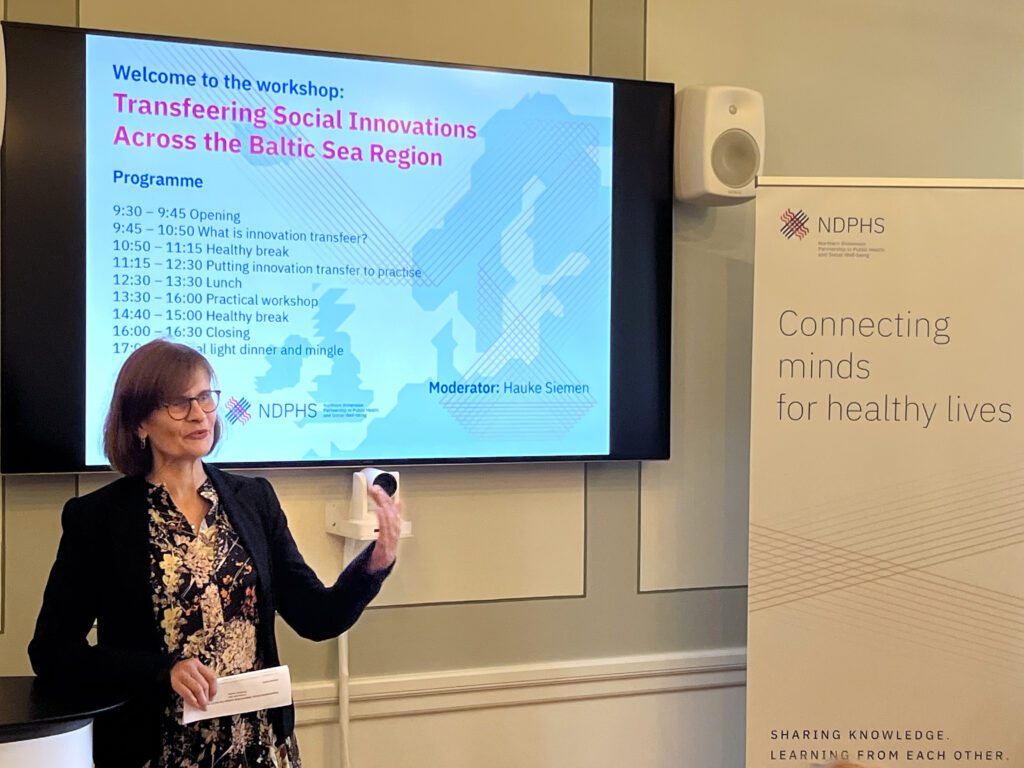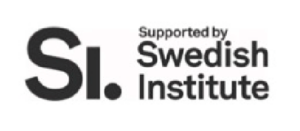Nordic-Baltic countries and Ukraine public health experts meet in Stockholm to explore social innovation transfer
Public health experts from Germany, Estonia, Finland, Latvia, Lithuania, Norway, Sweden and Ukraine recently came together for a workshop focused on exploring framework conditions for social innovation transfer. Organized by the NDPHS, the Transferability Workshop aimed to identify successful public health interventions in the Baltic Sea region that could be adapted and implemented in other countries facing similar challenges.
An innovation does not always have to be completely new, it can also be new to a given context, Hauke Siemen, REM Consult, Germany.
Just like Nordic-Baltic countries share similar success stories and innovations in public health, they also grapple with issues like decreasing mental well-being, limited health care resources, and ageing population. Though countries have developed various approaches to address these public health concerns, social innovation transfer allows for sharing knowledge about interventions that work, learning from each other, and gaining insights into why some interventions succeed while others struggle. In short, social innovations refer to the development and implementation of new products, services and models to meet social needs and create new social relationships and collaborations with an aim of improving human well-being.

The NDPHS workshop brought together over 40 participants from national ministries of health, research institutions, universities, small enterprises, and non-governmental organizations under three NDPHS ongoing projects “Economy of Well-being of People” financed by Swedish Institute, “MentalHealthMatters” funded by Interreg Balstic Sea Region and “Solutions for Age-Friendly Employers (SAFE)” funded by Interreg Central Baltic. Discussions focused on specific public health practices around mental health at work and age-friendly workplaces. A key outcome was recognizing that successful interventions and innovation transfer depend heavily on various factors:
- Understanding the context of both the place of origin and place of adoption,
- Organisational setup,
- Communication and framing (why are you doing it and why it works),
- Economics (social business model, costs and benefits)
- Long term perspective.

Innovations have to be translated and customized to improve the ‘fit’ with local conditions. The NDPHS workshop invited participants to share their knowledge about putting innovation transfer to practice that will help countries work smarter, not harder.
The workshop was the final event for the Swedish Institute – funded project Economy of Well-being of People, showcasing the methodology prepared during the project.
Photos: NDPHS Secretariat


